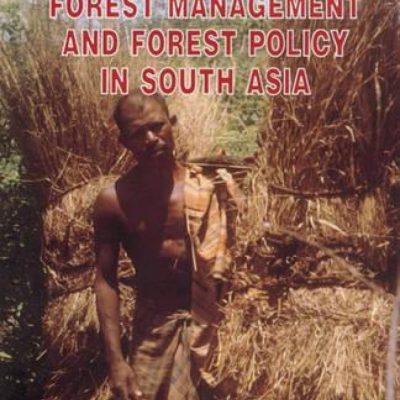Description
- ISBN-13: 9788124602225
- Publisher: D.K. Print World Ltd
- Language: English
- Returnable: Y
- ISBN-10: 8124602220
- Binding: Hardback
- No of Pages: 397
- Weight: 800 gr
₹562.50
Discover the vital role of indigenous knowledge in sustainable forest management across South Asia. “Indigenous Knowledge, Forest Management, and Forest Policy in South Asia” by Klaus Seeland (ISBN: 9788124602225) explores the impact of local knowledge on conservation, community development, and resource management. Featuring diverse case studies from India, Nepal, and Bhutan, this book offers insights into balancing economic growth with environmental protection and empowering tribal communities. Learn how traditional practices can pave the way for effective forest policy in the face of modern challenges.
5 in stock
| Weight | 0.5 kg |
|---|

Sumit Kumar –
A vital contribution to the field. I learned a lot about the potential of indigenous practices. Highly recommended!
Shashank Pratap Singh Chandel –
A well-researched book showcasing the importance of integrating indigenous knowledge. A little academic, but overall worth the read for policymakers.
Sumeet Gulia –
An important book on sustainable practices. Some parts were repetitive, but the overall message is compelling and critical for forest management.
Khushi Santosh Surana –
The book is a must-read for anyone in forestry. Could have been improved with more contemporary examples.
Hemant –
A valuable exploration of indigenous practices. Some sections were dense, but the case studies were insightful. Sheds light on crucial conservation efforts.
Rahul –
A must-read! A game-changer in forest conservation and policy. I recommend this.
Vivek Bose –
Comprehensive and enlightening! I appreciated the diverse case studies, though the language was a bit technical at times.
Aditi Raizada –
I really enjoyed learning about the different forest management strategies! It is a tad too long.
Ayush Kukrele –
This book opened my eyes to the relevance of traditional knowledge! A bit dry but full of useful information for environmental studies.
Soumya Saini –
A very insightful book. I appreciate the case studies but at times it felt like it was just scratching the surface.
Rahul Rinwa –
The book helped me to see the big picture of forest management. A very small issue is it needed some illustrations.
Vikram Singh –
Good overview of forest management, but I wish it delved deeper into the socio-economic impacts.
Ashish Koteshwar Mahadule –
Interesting, but dense. The potential for integrating knowledge could have been explored in more detail.
Vishal Baisoya –
Offers important insights. The connection between policy and local practices could have been explored in more depth.
Shubham Sehgal –
Important insights into forest policy. Some sections were challenging to get through, but the message is powerful.
Rahul Pahuja –
An eye-opening read. Explains the nuances of forest conservation really well. The book could be less academic.
Ritika –
I would recommend it to anyone in conservation. It can get a little repetitive at times.
Kartik Sood –
This book presents a compelling argument for incorporating local knowledge. The information felt a little dated, though.
Nishtha Rawat –
Offers important ideas for the region’s ecological future. The book felt too focused on specific geographic cases.
Priya –
Interesting perspective, but the writing could be more engaging. The book highlights the importance of local knowledge, though it occasionally gets repetitive.
Nandini Mehra –
This book should be read by all. It highlights the importance of the inclusion of Indigenous knowledge and traditional methods.
Tushar Jain –
A well-written exploration of indigenous forestry methods. A crucial read for policymakers and researchers alike.
Karma Kunzang Tenzing Bhutia –
Provides valuable case studies, although sometimes lacks a critical perspective on power dynamics within communities.